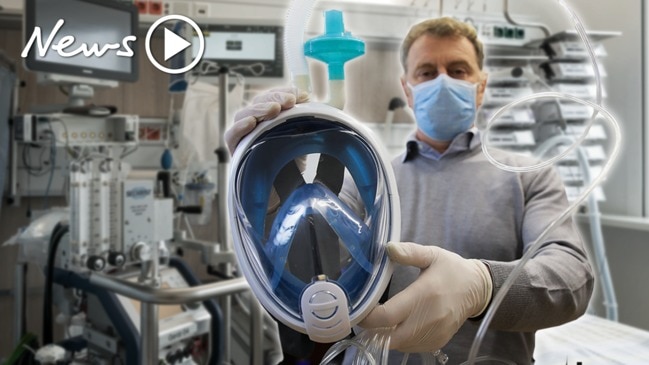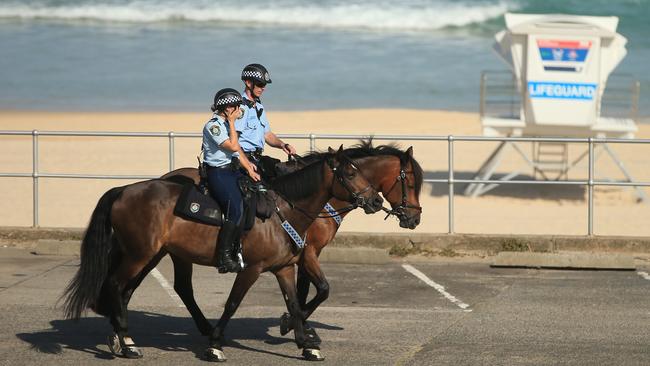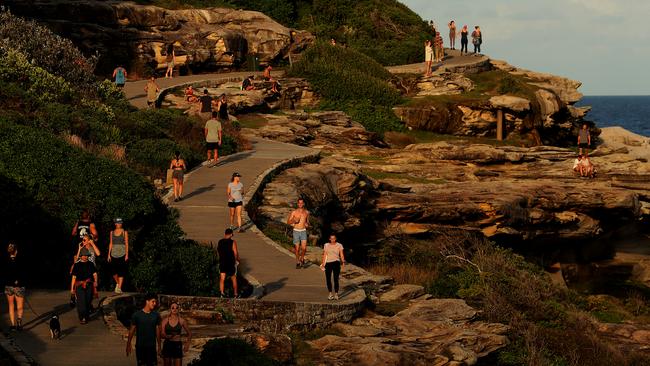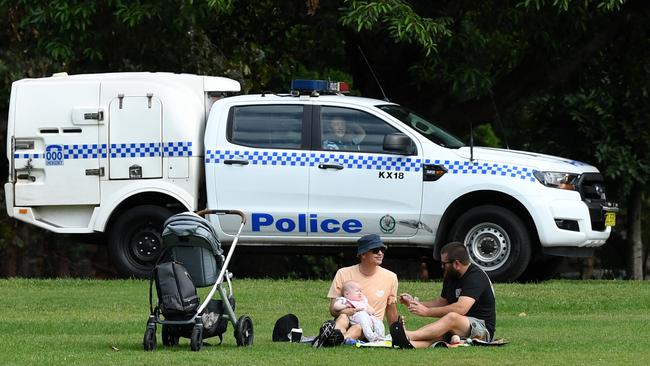Australia’s other China problem is bigger than coronavirus
Doing what we must to flatten the coronavirus curve is one thing, but mass citizen surveillance and breeding a culture of distrust is another. Worst of all, we know how it ends, writes James Morrow.

Rendezview
Don't miss out on the headlines from Rendezview. Followed categories will be added to My News.
It’s more than a little ironic that in fighting a disease that has come from China, Australia has become increasingly, well, like China.
To be sure, we still have a parliamentary democracy; our organ donation program doesn’t involve political prisoners; and journalists like me can write pieces like this gently sceptical of the government without being forced to reconsider the wisdom of official talking points from a very socially distanced concrete cell.
But consider this: In early February a video made the rounds showing drones flying around and harassing Chinese citizens for leaving their homes in the midst of the pandemic (which, it bears repeating, the Chinese government did everything to cover up for as long as possible).
At the time, people laughed it off as another example of the invasive Chinese security state.
Ha-ha, but then this week police over in Western Australia released their own video, showing off their bright shiny new drones complete with cameras and loudspeakers and flashing red and blue lights to bark at people for getting too close.

In Victoria, we had the fiasco of the Andrews government briefly banning non-cohabiting couples from visiting one another, perhaps the first time in history a socially progressive left-wing government has cracked down on the possibility of unmarried couples having sex.
And of course we have seen what has gone on in Sydney this week, with police cars warning off solo sitters at Rushcutters Bay and a motorcycle cop weaving between pedestrians at Coogee Beach enforcing distancing rules like a nun at a Catholic high school formal.
Add to this the stories of the gent in Newcastle who, having been warned twice by police, was eventually fined $1,000 when he was spotted eating a kebab on a bench, the people fined for sitting in their car without “a reasonable excuse not to be at home”, and the two men fined for talking in a suburban street, and it all begins to look a bit much.
Though there was something touchingly honest about the man who, when stopped by police demanding to know what he was doing out and about, answered truthfully that he’d left the house to go see his drug dealer.
But in all seriousness, you have to wonder where the authorities will go next.
Not to give anyone ideas but perhaps some sort of website or app to register any trip more ambitious than putting out the bins will be next (“MyDailyWalk.gov.au”, perhaps?).

None of this is to downplay the very real threat of the disease.
And the social distancing measures we’ve been undertaking seem to have flattened the proverbial curve – though stopping cruise ships and quarantining overseas arrivals have arguably done even more.
Which is great. No one wants to see the scenes that are playing out in northern Italy and Spain and New York City repeated here.
The good news is that chances are, they won’t be: According to modelling from a team at the University of Sydney, on current trends we are likely to have COVID-19 under control by July.
If the model is correct, Australia will see between 8,000 and 10,000 infections which, extrapolating from current mortality figures, might see us suffer a total of 50 deaths during the pandemic.
Tragic, yes, but nothing compared to the US, where the death toll has just topped 5,000 and in some places morgues are overwhelmed trying to handle the load.
But the danger is that, just as we will see the government take stakes one way or another in various parts of the economy to keep things going during Josh Frydenberg’s mooted “hibernation” (which will be harder to unwind the longer this goes on), so too will authorities get used to their new-found powers to watch and compel.

It’s long been whispered that no small part of Australia’s public health lobby admires at least elements of China’s social credit system which governs every aspect of the lives of that nation’s citizens. Wouldn’t it be great if there was a way, they ask, to (for example) reward healthy food choices and civic minded behaviour and nudge people even further away from Big Macs and beers?
Last year in the Northern Territory, Darwin embarked on the innocently-named “Switching on Darwin” project, which the city innocuously described as “(enabling) the use of technology and data to enhance, maintain and find efficiency in how we deliver services in the city for residents, businesses and visitors.”
But, as the NT News noted at the time, the truth is a little more worrying: “Darwin council will use Chinese-inspired surveillance technology to gather data on what people are doing on their phones and to put up ‘virtual fences’ that will instantly trigger an alert if crossed.”
If this was the dream of urban planners and bureaucrats before coronavirus, what will they think of now that the disease has allowed unprecedented restrictions on freedom and movement in the name of public health?
All the more reason for the public to start to demand a clear picture of how we will get, as much as possible, back to the way things were once the epidemic has peaked.
James Morrow is the opinion editor for The Daily Telegraph.

